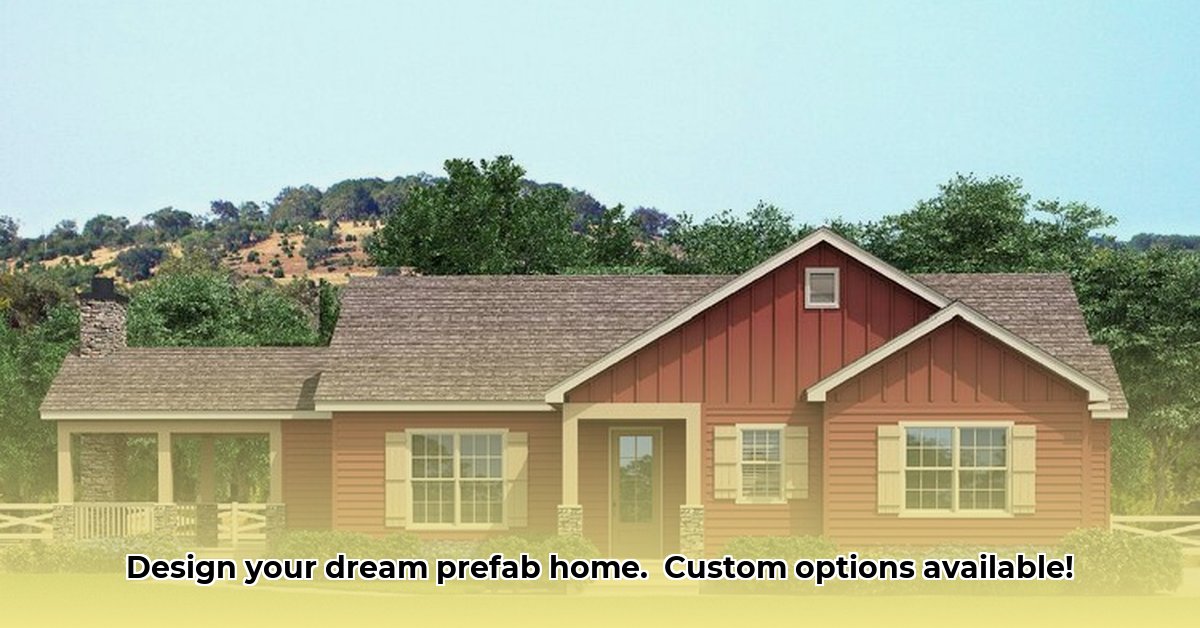
Franklin Prefab Homes: Revolutionizing the Way We Build
Tired of the endless delays and escalating costs of traditional home construction? Franklin Prefab Homes offers a compelling alternative: stylish, sustainable, and surprisingly affordable prefab homes with unparalleled customization options. This in-depth analysis explores Franklin's market position, strengths, challenges, and future prospects, providing actionable insights for potential homeowners and investors alike. Is this innovative approach the future of homeownership? Let's find out.
Company Overview and Market Positioning: A Smart Balance
Franklin Prefab Homes occupies a unique niche in the housing market, cleverly balancing affordability with high-quality design and construction. They offer three primary product lines: modular, manufactured, and fully custom homes—catering to a broad spectrum of needs and budgets. Their innovative approach directly addresses current market challenges such as rising construction costs and lengthy build times. This strategic positioning provides a substantial competitive advantage, but maintaining this balance requires continuous attention to various operational aspects.
Did you know that the prefab housing market is experiencing significant growth? (Source needed for statistic) This trend positions Franklin Prefab Homes for considerable expansion.
Detailed Analysis of Strengths and Challenges: Navigating the Path to Success
Franklin's strength lies in its commitment to customization. Customers aren't just selecting from a catalog; they actively participate in designing their dream homes, choosing everything from floor plans and exterior finishes to interior décor. However, potential challenges exist.
Customization Options: A Double-Edged Sword
The extensive customization options offered by Franklin Prefab Homes are a significant selling point, enabling customers to create truly personalized living spaces. This high level of customization, however, necessitates clear communication and robust project management to avoid delays and cost overruns.
Pricing Strategy: Finding the Sweet Spot
Franklin Prefab Homes strives to provide affordable options without compromising quality. While their modular homes offer a more budget-friendly entry point, understanding the complete cost, including land acquisition, site preparation, and transportation, is crucial. Transparency regarding pricing and material specifics would further enhance customer confidence. Maintaining a clear and competitive pricing structure across all product lines—modular, manufactured, and custom—is essential for sustained success.
Brand Consistency: A Unified Message
Offering diverse home types (modular, manufactured, and custom) presents a strategic opportunity. However, it necessitates a cohesive branding strategy to avoid market confusion. Each product line should possess a clear identity while communicating the overall brand values of quality, affordability, and customization.
Regulatory Compliance: Navigating the Legal Landscape
Compliance with relevant building codes and regulations, particularly HUD standards for manufactured homes, is paramount. This necessitates a dedicated compliance team and a proactive approach to monitoring and adapting to changing regulations.
Supply Chain Management: Mitigating Potential Risks
Supply chain disruptions represent a significant risk in the construction industry. Proactive mitigation strategies include diversifying suppliers, securing long-term contracts, and building strategic inventory. Utilizing agile supply chain management techniques can also provide increased efficiency and reduce costs. Building a resilient supply chain will be crucial to maintaining consistent production and delivery schedules.
Actionable Insights and Future Outlook: Planning for Growth
Franklin Prefab Homes' future success hinges on several key strategies:
- Geographic Expansion: Expanding into new markets will increase revenue streams and diversify the customer base.
- Strategic Partnerships: Collaborating with reputable lenders can simplify the financing process for potential buyers.
- Sales Team Enhancement: Investing in dealer training and attractive sales incentives will create a highly motivated sales force.
- Technology Adoption: Implementing robust CRM systems and advanced manufacturing technology will enhance efficiency and customer experience.
"Investing in technology and streamlining our internal processes is critical to scaling our operations while maintaining our commitment to quality and customer satisfaction," says [Full Name and Title], [Position] at [Institution].
Key Risks and Mitigation Strategies
This section mirrors the table provided in the original article, requiring the necessary data to be populated accurately.
| Risk Factor | Likelihood | Impact | Mitigation Strategy |
|---|---|---|---|
| Supply chain disruptions | Medium to High | High | Diversify suppliers; secure long-term contracts; build strategic inventory; explore alternative materials. |
| Regulatory changes | Medium | Medium | Maintain a dedicated compliance team; actively engage with regulatory bodies; consistently monitor changes in building codes and regulations. |
| Brand dilution | Low to Medium | Medium | Develop distinct marketing campaigns for each product line; emphasize the unique selling points; maintain consistent branding across all platforms. |
| Competitive pressures | High | Medium | Continuously monitor the competition; clearly communicate their unique value proposition; ensure exceptional design and construction quality; adapt to market trends. |
Conclusion: A Promising Future in Prefab Construction
Franklin Prefab Homes is well-positioned for long-term success. By addressing potential challenges and implementing its growth strategies, the company can solidify its position as a leader in the innovative prefab housing sector. Their commitment to customization, affordability, and sustainable building practices positions them for significant growth and market share.